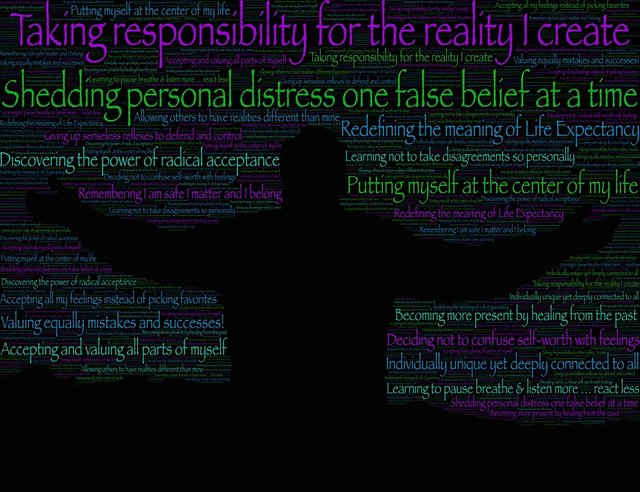
I’ve been looking for a remote job since January 2019. I got some advice from various people, including job coaches, and on certain online communities (2 of which I cannot recommend to people because they are quite toxic). Through this, I’ve learned a few things and picked up knowledge that I think can help you. Most apply to the majority of job openings, though some of these tips are specific to telecommute jobs.
I hope these tips will help you to find a job. Better yet, learn how to become an entrepreneur!
Searching

Get a Job What?!? I know what you're thinking! But, if you're going to search for a remote job, this is the FIRST thing you should do. Why? Because although there are numerous remote jobs available across the world, there are far more candidates than there are jobs and you are competing against a very large pool of (generally) high-quality candidates. If you can't easily demonstrate why you're better than the hundreds to thousands who applied for the same job, it's going to be tough. You'll find a few rejections in your inbox, a ton of silence, and interviews that don't end in getting hired. Thus, search for a local job first to make sure you can pay the bills until you get a telecommute job! And please keep in mind that you can try to get your new employer to make your job remote. I made the mistake (for very specific and not entirely stupid reasons) of not doing this, and had to rely on state aid and my savings to get us through this time. Knowing what I do now, I would've gotten a job locally in the first month so I'd be thousands of dollars richer now!
Online Profiles Get profiles online, especially on places like LinkedIn and Indeed. Here’s my review of several sites that offer online profiles: Job Sites Where You Can Create an Online Resume (Profile). If you want a “beautiful” resume, this is the best option to refer a real human to (put a link on your plain resume).
Also, you can use sites like Kickresume and enhancv to make “pretty” resumes (that aren’t software compatible), and KickResume can be used to turn your "pretty" resume into a simple webpage.Job Sites Search a lot of different sites for work. My article: Are You Looking for a Remote Job/Employee? Resources and Advice Here! has a big list, including arbitrage, freelancing, overseas jobs, and on-site and telecommuting jobs.
Remote Doesn't Always Mean Telecommute Huh? That's right - several times you're going to see the word "remote" for jobs that are not telecommuting jobs. Remote may actually be part of the job title, like "Remote Tester", or it may mean that you're not actually going to work out of the office - you may be based from a satellite office or even your own home, including for sales and field tech jobs.
To make matters worse, many job sites don't have a category for telecommute jobs and searching for "remote" may get you jobs that say "not remote" (because there's no way to eliminate them), while some companies just don't use the word "telecommute." It can be frustrating!It's a Numbers Game Despite the hubris of some companies and HR people, we can't afford to apply to ONE company and wait for up to 2 months (a few companies can keep you waiting even longer) hoping they'll hire us. Seriously - I've had companies express the idea that if we're really interested we won't have applied to anyone else! Yes, it's ludicrous to think that, but employed people quickly forget the drudgery and despair that often accompany searching for a job, and they seem to think they're THAT special. Ok, so maybe their company IS really special, but only a fully employed person or a fool would apply to one company and then move to the next after getting a rejection. Be realistic - apply to as many jobs as you can!
One person reported that she'd received a rejection EIGHT months after applying!Check Them Out Look at any info about the company you're considering applying to, including independent reviews, employee reviews on Glassdoor and Indeed, customer reviews on Trustpilot and whatever the Better Business Bureau (US only) has on its site, which may include a rating, accreditation, customer reviews, and customer complaints. I search without using a location, but it sometimes helps to do so. If you see a company with a lot of bad reviews, a lot of really good reviews, a spread with many 5 and many 1 star reviews, those may be companies to avoid. If you see a lot of 5-star reviews that say "No cons at this time" or something similar, it's possible that the company is adding false reviews to improve its score. If you see a lot of negative reviews and complaints from customers, you'll need to evaluate them for validity. If most are valid complaints, there may be circumstances that you're not aware of, but it may be a sign that the company is unethical.
Also look at any statements of culture, benefits and so on, and look at whether they're passing all the overhead that they'd pay for in their office on to you along with a low salary - these are companies that don't care about you, or are in a country where the wages are not that good.
Personally, if I see that the employees are happy and the customers are generally happy, the culture matches me well and they're not trying to pass on all their costs to me, I'll apply. I avoid the rest.
If you're just entering the industry/job, you may have to start with one of these companies (that don't rob their employees) to get sufficient experience, then find a better company to work for. I could give you a list of companies I feel fall into the category, but I'm not sure I wouldn't get into trouble. Let's just say that a lot of outsourcing companies and recruiters fit the description.Be Careful Telecommuting job seekers are targeted by criminals. If you look, I've already written several articles on my Steem account, @reveurgam; the titles start with "Beware". These articles reveal scams I've encountered on job sites and via unsolicited emails I've received. Here's one: Beware Legacy Planning Group and Affinity Trusts (California)!. Fraudulent telecommute/remote/work-at-home job scams include: package/mail handler, envelope stuffer, product tester, survey taker, payment receiver and a few others, but the first is the most common. If you search for scams, you'll see info on these and other types of online scams.
If you read my articles and pay close to how I identify scams, you'll learn a lot.
Here's a hint: emails from companies that you didn't contact, especially if they offer very high wages, important-sounding positions, don't provide their company name, website, address and office phone number, immediate hire and errors in the offer are all red flags. If they give a job site that seems simple and isn't searchable via search engines, that's another bad sign.
If a company asks you to complete a project that is unpaid, do not do it. Some unethical companies want free work done for them, so they'll get candidates to do the work, and then reject them. I'm not referring to tests - I'm talking about, for example, a complete design, a functional module or app, etc. If they pay you, that's different.
In addition, if they expect you to pay for training, signing up, placement, background/drug checks, etc., which I have seen for a variety of jobs, you should be very wary and check the company carefully. These are things you should NOT have to pay for. One company advertised entry-level transcription work and free training but, after I applied, it became a very expensive training that they offered. Another company had a very glowing job posting for teachers and public speakers, promising at least $1,000 per speaking engagement, but they expected you to pay several hundred dollars for a 3-day training (that short is close to worthless) plus transportation, hotel accommodations and food, and they provide the product but you have to find your own clients. As an experienced speaker on education, I could create my own product and hire a team to find clients and set up events for me to speak at.
@danielmoore on Pangian shared this (used with permission):
As someone who enjoys writing but needs portfolio pieces to get jobs, things like this always make me jump. However, I’ve read enough scams in the past to take my time in research. Here are some red flags if you are considering them:
The website doesn’t have an About Us page…this is a key part of business as it tells a bit about your story. To not have one is very odd.
Their Facebook page shows likes and followers, but they are hidden…you cannot see any names of anyone who likes or follows the page, likely unless you are connected to them. If this isn’t strange enough, none of their posts show any engagement at all. This is troublesome, but I’ll explain that in comments on their Twitter account.
Their Twitter is founded 2013 and averages about a post every two months…this isn’t entirely problematic, just strange. What really tips the scale is the lack of engagement. It’s difficult to believe a company with any nominal success would have so few followers, so few likes, but especially so few comments. The comments that are present are also all supportive, and as everyone knows, the fastest way to the right answer on the internet is the wrong one. At best, a lack of post engagement on two major networking sites either demonstrates a company not doing anything. At worst? Something much much worse.
Lastly, their LinkedIn account…it’s only three months old. The Twitter is 2013. The Facebook is 2017. The website has a copyright of 2018. The company shows a founded date of 2013. Additionally, a search for reviews of the company turns up nothing, and direct search of the website name doesn’t even land at the top of a search. Maybe a business 10 years ago doesn’t start an account on every platform, but a business in the last 5-6 years? And how are you in business for six years and not come in first on Google search for your company name?
Be wary of giving this site your personal or paypal information. Ask lots of questions if you decide to try them out.
Correct Mindset

Be Patient & Persistent Need I say more? Ok. I spend at least as much time job searching as I would at a full-time job - 7 days a week. Grinding through the lists of jobs and appropriately responding to openings is important.
Don't Take It Personally It can be hard when people don't respond to your application, worse when they do just to say "sorry", and much worse when a series of interviews end up with a rejection. You have to remember that they may look at up to tens of thousands of resumes, do initial evaluations of hundreds or even thousands, then there are the tests, evaluations, interviews and so on. Chances are it's not YOU that they've rejected - they just have too many other choices and only one job to fill. Think of it like this: the odds are 1 in 100 or worse that you'll be chosen.
Don't Invest Yourself Personally in a Company Before They Hire You It doesn't matter how badly you want to be accepted into an amazing company - don't hang your hopes on it happening. Don't get emotionally attached to a company - that's a sure-fire way to depression if they reject you. Save your commitment and emotional involvement until after you've been hired and you'll survive the punches of rejections much better.
Likewise, Don't Equate Rejections with Identity A lot of people, especially males who are used to being the main income earners, tend to become depressed because they take it personally that they're being rejected and, worse yet, they feel ineffectual because they're not earning money. You need to distance yourself from such a false belief!
Reward Your Efforts Set how many hours before you take breaks, and try to match it to a normal work experience. Looking for a job really IS a job! After you've sent in X number of applications, reward your efforts: play games, play sports, have fun with your pet, go for walks, read, research, write articles, spend time with your loved ones and friends or do whatever strikes your fancy. A reward after one hour of looking is counter-productive. Set a target number of jobs applied for before you'll allow yourself as well as a target number of hours if you've not found a job to apply to. So, perhaps you'll set a target of 3 applications or 4 hours, whichever comes first. It's going to depend a lot on the type of job you're applying for, the requirements they (and you) have, and so on. There may be times when you'll be so burned out from looking that you'll spend a couple of days on "leave" from your job of searching for a job!
Keep Socially Active One of the best way for many people to combat the maddening effects of a job search is to socialize. Get out on a regular basis, don't talk about your job search, don't think about it - just enjoy yourself with people who are kind and fun. I don't suggest you go out drinking because that takes a lot of money and you may have trouble with a hangover the next day. You don't have to spend a lot of money or get wasted to have a good time! Being socially active may also allow you to find a job!
Be Realistically Optimistic It takes positivity to get a job. A negative attitude will cause you to subconsciously thwart your efforts to get a job. You'll write things that will get you excluded. You'll say things in interviews that will cause them to doubt. Stay constructive in your thoughts and deeds, and always practice being grateful each day. A little meditation won't hurt, either.
Writing Your Cover Letter and Resume/CV

Word processors and templates for resumes abound these days, and you can use many for free, including LibreOffice and OpenOffice, as well as Google Docs and a few others. If you can get access to the Internet, you can write your cover letter and resume.
Brainstorm Before You Start Do research on skills typical of the job you want, make a list of relevant skills you possess, prepare a list of your work experience and come up with bullet points, and try to improve it all before making a document.

Write a Super Cover Letter A cover letter should be no more than 1 page composed of about 3-4 paragraphs.
- There should be an introductory paragraph stating the job you're applying for and why.
- The middle paragraphs should detail, based on the job description, why you're a good match, using language from their description to make it look more personal and thoughtful. To be specific, you need to orient this paragraph towards what they want in terms of the job AND their culture. How do you fit both?
- The final paragraph should focus on either personality characteristics, or make plain why they need you.
Organize Your Resume Correctly Most resumes should be 1-2 pages, although you can have a separate, longer and much more complete resume available in case it's ever requested. Certain jobs may require more - such as C-Suite (CEO, CTO, CFO, etc.) and other leadership positions, or less for very low-level/unskilled jobs. There are two basic formats: the chronological (where you list your jobs in order) and the functional (where you organize your jobs by function instead of when you had them), but you can create a hybrid, too, like I did because of my varied job experiences and gaps. DO NOT provide too much detail, especially if it's not relevant to the job description! Less is often better than more!
- Basically, the top should have your name and contact information (an address may not be useful for telecommute work, so just list the city, state/province and country), including links to your best online profile and a quality portfolio of your work (if relevant).
- The next section should be a bulleted list of relevant skills - preferably customized to each job description. This is the only time I use columns (3) and about 12 skills. If you're very skilled, you could use 3-5 bulleted sentences instead.
- If you recently graduated, put your educational section next. However, if you graduated long ago, like me, put it at the bottom and exclude dates.
- Your work history goes here. Job title and dates of employment, followed by the company name and location on the next line, then some bullet points with statistics that demonstrate how your efforts benefited the company, and key duties you did that aren't implied by the job title. For example: "As a result of my rewriting knowledgebase articles, calls to customer service decreased 20%." If you never got such info from your boss, try to contact him/her and get that info, or at least estimate. Most people don't need to go back more than about 10 years, although mine goes back 20 for specific reasons.
- You can consider adding a Volunteer section if you strongly feel it'll make you look good or is highly relevant to the job position.
These are just my suggestions - some experts will agree while others will say I'm wrong. Ultimately, there is not one magic formula for great resumes because different people look at different things and think differently.
Multiple Job Titles = Multiple Cover Letters and Resumes This should be a no-brainer, so I beg your pardon if I'm offending your intellect. If you're looking for two different job titles, you cannot use the same documents to get them. Create as many pairings as you need to get each job title.
Post Your Basic Cover Letter and Resume(s) for Critiques There may be something that you just aren’t aware is a problem but there's usually more than one thing. I've been helped and I've helped others to improve their cover letters and resumes and it's a sad fact that many of us just don't do a good job. We tend to provide too much (or too little) information, make mistakes, use the wrong tone of voice and all sorts of other things. You need to get the dispassionate input of other people, so find an online group or a community service where you can get feedback. Your college or university may offer such services. I don't recommend submitting your resume to professional resume writers for an evaluation - they're in the business of this so they're going to want to get you to pay for your services even if your resume is great, plus different resume writers (and HR people) have different preferences, so your document may not match what they think is best, but be great for someone else! If you know it sucks, on the other hand, and you can get quality referrals to one, plus can afford the often high fees, go for it!
If you're applying for unskilled/low-paying jobs, don't bother.Bespoke Your Documents The British say "bespoke" but Americans say...Customize your cover letter and resume to the job you’re applying for. After I started doing that, I started getting interviews and a few jobs I had to turn down. This was because I finally had a good resume, but it was even more so because I custom-wrote my cover letter for each company, trying to make sure to include everything from their job description that was true for me. In comparison, I had only 2 interviews prior to this (both jobs I got, but couldn’t take) in ~4 months. If you don't think you have the ability to customize your resume, at least make sure it's highly relevant to the job title you're trying to get.
Use Standard Fonts Don’t use unusual fonts - some software uses OCR to convert your resume to another format, and may only be able to accurately translate certain fonts. For the same reason, underlining, italics, bolding and even columns can cause trouble for software. Also, you should only use 1 font. I know you want your resume to stand out, but it's better to use a small amount of color strategically placed. If you're not sure, find a free service that evaluates ATS compatibility.
Check Spelling & Grammar If you’re not that good at the company's primary language, you need to make sure your application looks flawless. You may be able to get away with it if you're not from a country where it is the first language but a lot of companies expect that you can communicate clearly and effectively in their chosen language because of the problems caused by poor communication. If you haven't mastered a language sufficiently to achieve a high score, you can still try applying for a job but don't let your hopes get too high.
Spelling and grammar issues will kill your chances for many jobs. Most word processors have spelling and grammar checkers included. They DO make mistakes, but they may be better at catching errors than you are! If a person catches an error created by software, you can have a good laugh about it together if they mention it.

No Photo Unless it’s required, don’t send your photo. It can sometimes lead to discrimination. I’d change your photo online so that you look professional unless you’re in a profession where other standards may apply, such as PR, sales, marketing, models and dancers. Some companies will request a portfolio of photos if you're, for example, an actress. There's a growing trend amongst companies to ask you to make a short video; this does not mean you should send an unrequested video, though!
No Graphics Images, charts, and other graphics mess up software, especially background images behind the text. If you want graphics on your resume, make a second resume for human eyes only. Give this version ONLY to people who will look at it without putting it into software that evaluates it. Better yet...
Be Careful with Creativity The only exception to giving a beautiful, creative resume is if you’re handing it directly to the hiring manager, it’s for a creative position, and you know the person will look at it right away. Hand over a plain version at the same time for their software to evaluate. It's better to hand in two versions than get a poor rating because their software didn't understand your fancy resume.
Software Friendly Make sure your resume is made to be easy to parse by software like ATS. If it isn’t, your resume gets chopped up and becomes so mangled that you get a poor ranking. There are companies that offer free evaluations of your resume, and some even offer to evaluate your LinkedIn profile! My article might help you understand better: https://steemit.com/humanresources/@reveurgam/should-your-hrd-use-ats-software
Networking & Interviewing

Network Use Pangian and other online communities to connect with others, Chambers of Commerce, professional networks like LinkedIn, Pangian, Remote.com and AngelList (https://angel.co). BE AN ACTIVE PARTICIPANT so you get attention, but ease into it. Jumping in and being very active from the start will cause some people who are intolerant, xenophobic or otherwise averse to change to look at you in an unfavorable way - not because of you doing anything wrong but because...Well, it's like a new kid trying to join a group of kids playing at school, with about that level of maturity sometimes. Networking is one of the best ways to get a job. I know it makes me uncomfortable and I'm not really good at it, but it's a guaranteed way to open doors if you do it well!
Interviewing Correctly Go into it with the goal of making friends with people. Research the company so you can ask intelligent questions and give answers that show that you know about them. Show them what a great person you are by acting like you're not scared. In fact, teach yourself not to be scared - you'll get much better results because negativity has a funny way of causing your brain to malfunction (study the amygdala if you want to know more). Be humbly confident, smile, make polite jokes, occasionally take control of the conversation and listen carefully to the speaker!
Great article. Thank you for the tips as well, especially a good one about job sites. This is where I found a job for myself as well. I found it here by the way https://jooble.org/jobs/Simi-Valley%2C-CA. So if you are searching for a job yourself then consider following the link and I'm sure that you will find something fitting here. Good luck.
Downvoting a post can decrease pending rewards and make it less visible. Common reasons:
Submit
I'm glad you found my article to be of value. I'll take a look at Jooble and add it to the list.
Downvoting a post can decrease pending rewards and make it less visible. Common reasons:
Submit
Thx, now I am looking for a job and your advice are so actual
Downvoting a post can decrease pending rewards and make it less visible. Common reasons:
Submit
You're welcome! I hope that it will help you!
BTW, did you see the other articles in this series?
Downvoting a post can decrease pending rewards and make it less visible. Common reasons:
Submit